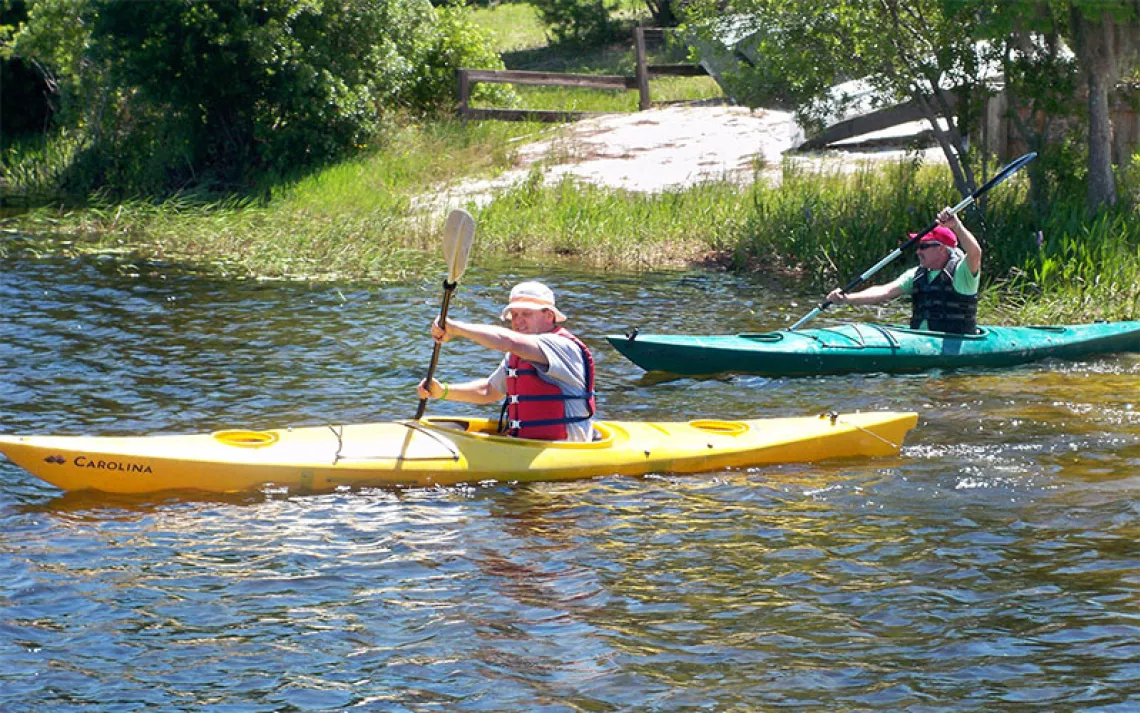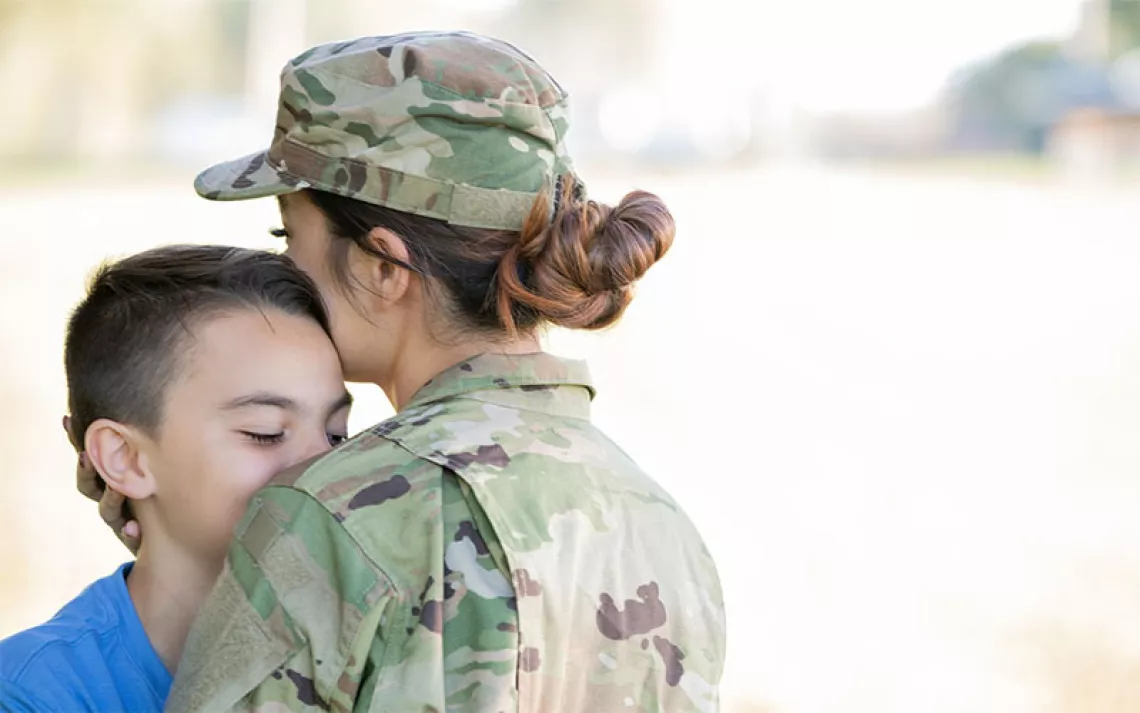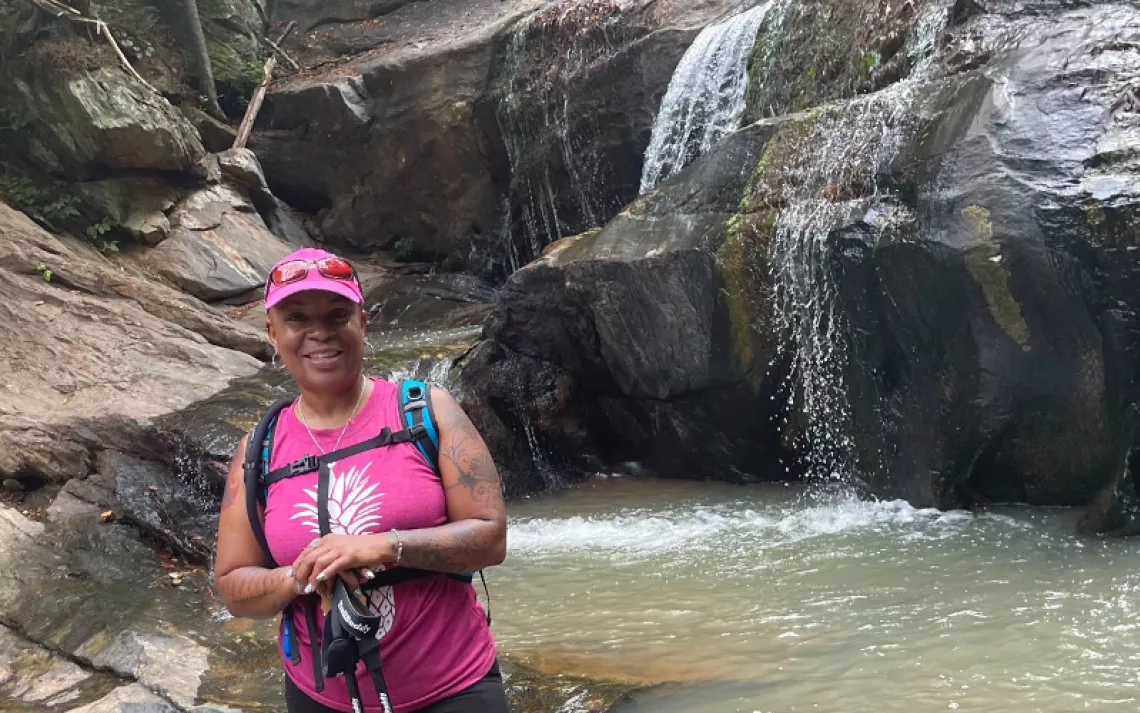War-Ready to River-Ready: A Vet’s New Life on the River
Suzy Matsubara learned that whitewater is what she needs
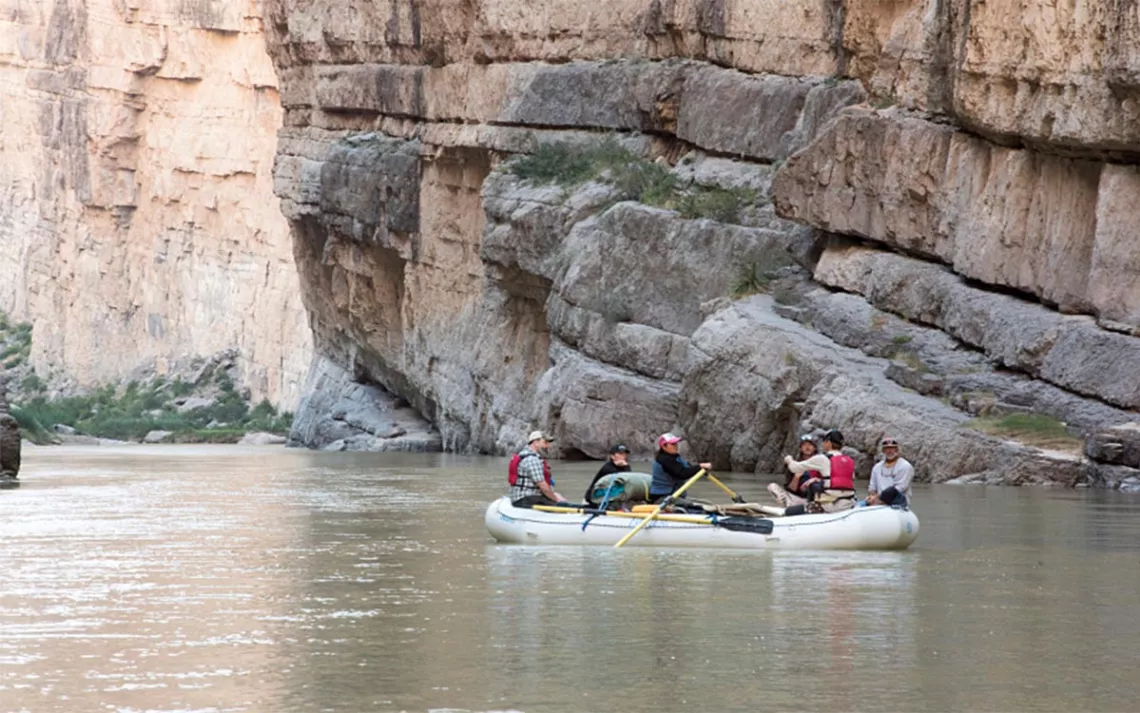
Photos courtesy of Lindsey Robinson
“There's something healing about the water. I don't fully understand it.”
Suzy Matsubara didn’t grow up around the water, but she was hooked from the moment she stepped into a 14-foot orange raft and began paddling down the Rogue River. She stared down at her reflection in the dark water, cut by each forward stroke of the paddle blade, and felt her life begin to change.
When Suzy was 18, she followed in her grandfather’s footsteps and enlisted in the Army National Guard. It was the end of summer in 2001. She remembers her mother’s pride and excitement for the educational and leadership opportunities Suzy would have.
Two weeks later, terrorists attacked the World Trade Center and the Pentagon, beginning the conflict that would define her generation of service members. Case in point: Suzy spent her entire 15 years in the army at war.
"That was an interesting time,” Suzy reflects now. It was 15 years of deployments, mobilizing for them, or staying constantly ready for another mobilization notice. Fifteen years of putting aside life goals like steady relationships to focus on being war-ready.
In 2011, Suzy moved to California and transferred to the 223rd Military Intelligence Battalion. For several years she worked full time for the guard as an operations officer and was later promoted to company commander. She enjoyed the challenges of leadership, but it also buried her in stress and anxiety. She also lost two incredibly close people in her life, and the support she needed to get through her work challenges vanished. She knew that she needed help in healing, and to find a way to process the pain and stress.
The only comfort she found was being in nature.
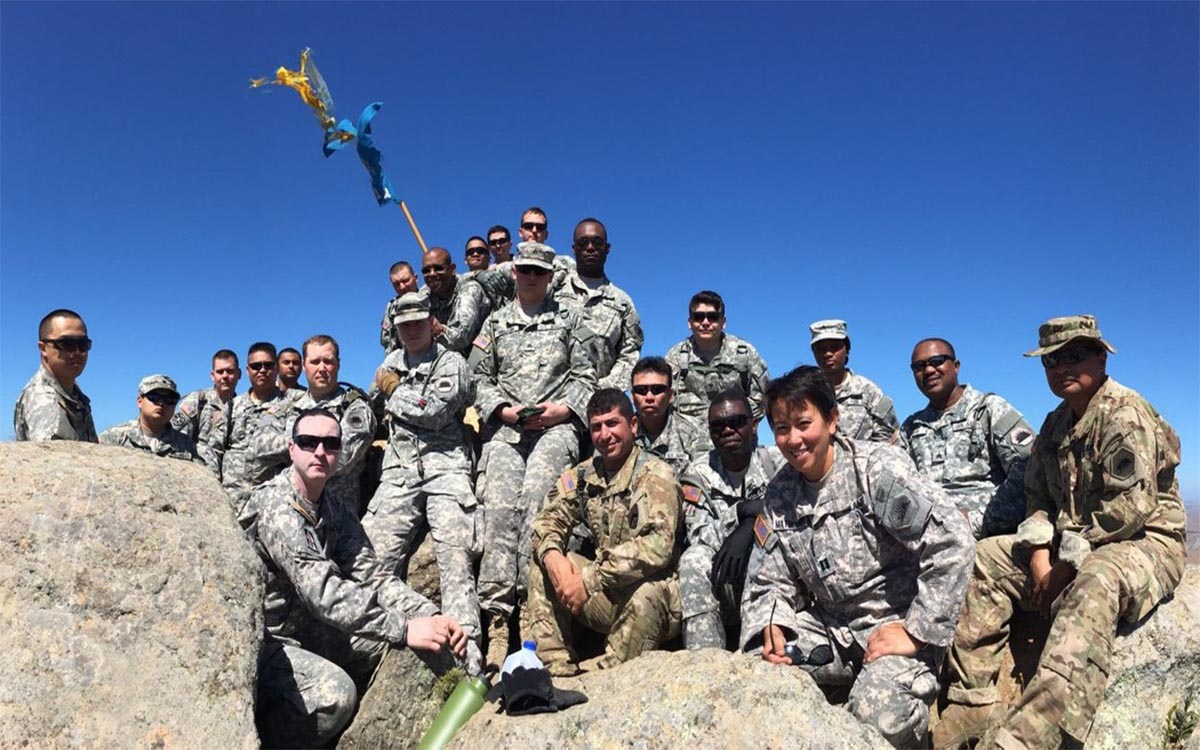
So in 2015, Suzy signed up for a Wounded Warrior all-women rafting trip. It was her first river-running experience and the first time she’d laid eyes on southern Oregon’s wild-and-scenic Rogue River. Drifting through the still water, surrounded by cedars, pines, and the Siskiyou Mountains, Suzy was awestruck by the beauty and peace.
The Rogue also has several exciting class III and IV rapids. Some of the women, Suzy noticed, worried about falling out of the boat or flipping, fearing the powerful whitewater that crashed against boulders and recirculated deep beneath the surface.
"Watching people have courage and helping them out—getting them back in the boat—was a significant and life-altering moment,” she says. “Being able to help people around the water led me to want to be a guide."
Guiding is a physically challenging job, involving long days and low pay. But inspired by the work ethic and positive attitude of her guides on the Rogue, Suzy began researching programs for veterans that would help her gain the river experience and safety skills she needed. A Google search turned up the Sierra Club's Military Outdoors program, which offers vets opportunities to attend river-guide school. Suzy applied immediately. A few months later she received word that she’d secured a spot in OARS’s California guide school, and that Military Outdoors would pay all her course fees.
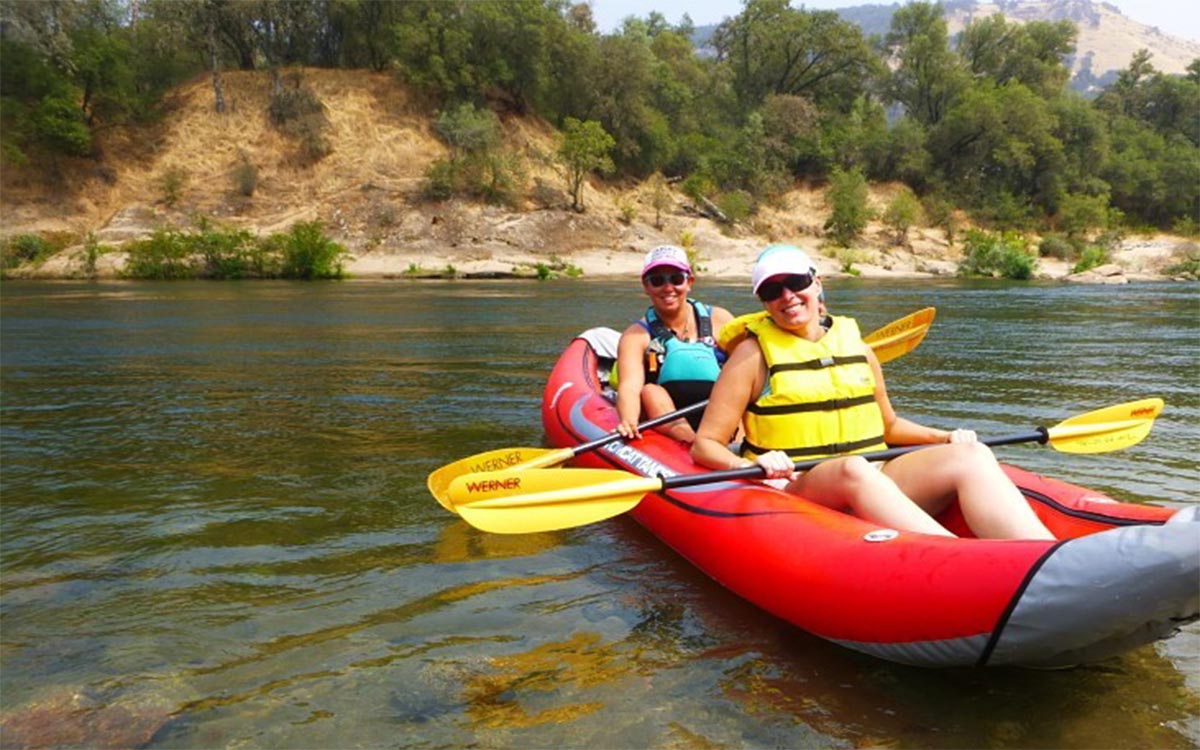
Walking into the OARS American River Outpost in Lotus, California, Suzy was excited but trepidatious. At 34 years old, she assumed she would be out of place among 18-year-olds seeking a first job away from home. She was happily surprised to find that her class included three other veterans her age, all also sponsored by Military Outdoors. She felt an immediate sense of connection.
For a week in June 2017, the students spent long days studying the currents and river hazards on the South Fork of the American River. Every day they rigged boats, carried them down to the water, and took turns guiding sections called “Chili Bar” and “the Gorge.” Suzy learned paddling techniques, giving commands, catching eddies, avoiding rocks and holes, hitting big waves at just the right angle, climbing unassisted back into a boat, and righting flipped ones.
The summer of 2017 could not have been better for river running in California. Thanks to record snowfall in the Sierra the preceding winter, California’s rivers enjoyed exceptionally high water—three times the normal flow on the South Fork, for example. Rapids were huge, and continuing snowmelt kept the water temperature frigid—nature's inspiration for getting back into the raft as quickly as possible.
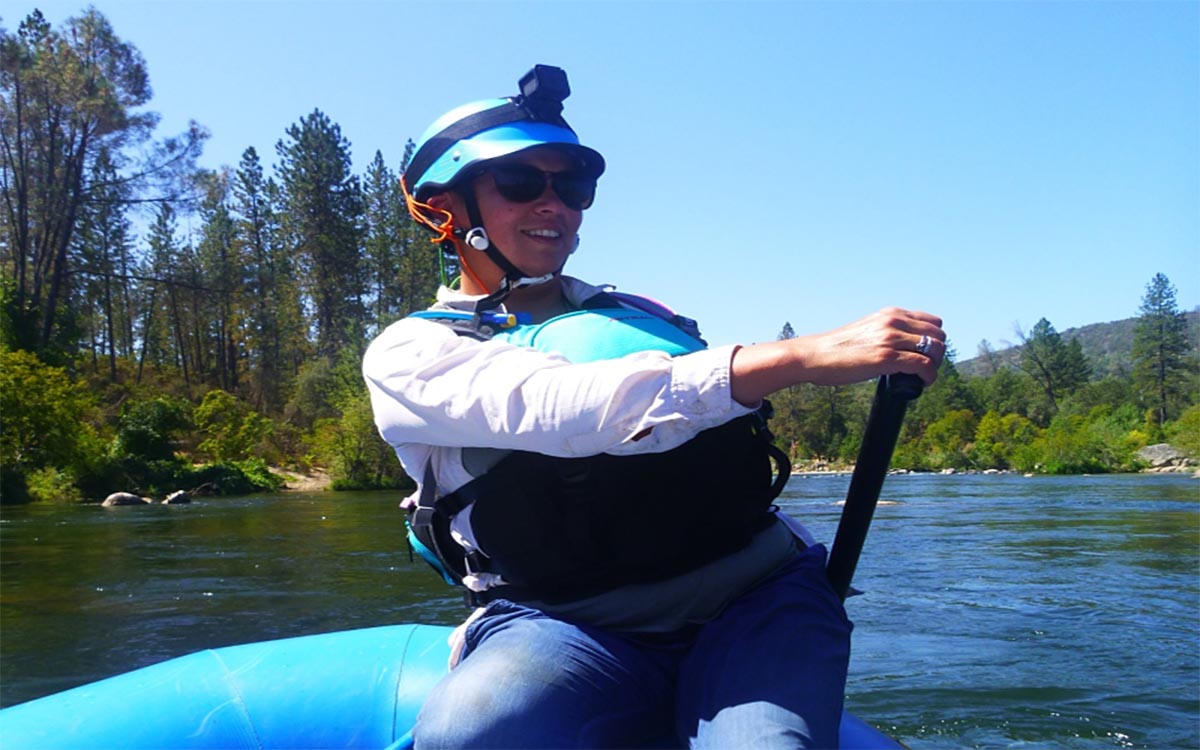
One of the biggest challenges for OARS guide school students is maneuvering through a series of class III and III+ rapids on the South Fork. Without the benefit of the time or experience it takes to memorize each river feature and remember the right (or wrong!) line to take, students must fumble their rafts through each rapid, then eddy out and set up safety for the rafts behind them. Suzy found that reading the churning water and giving the right commands to her passengers to make it through “upright and downstream” was more difficult than she expected.
"I didn't really know what I was doing," she admits. "But knowing [my classmates] had my back and were ready to support me was incredible. They knew I was new and we could end up flipping or swimming, but they supported me anyway and had confidence in me. It reminded me of the support I had found in the military."
Suzy also found support came in the camaraderie she had with the other veterans. “Being human can be a deeply lonely experience,” she says. “But we can connect to other humans in a meaningful and deep way that shatters, for me, that deep sense of loneliness.”
At the end of guide school, Suzy applied for a summer job guiding with OARS on the American River and was accepted. It felt like a dream come true. Suzy became a rookie raft guide and spent the rest of the summer living in the employee campground at the OARS outpost. She continued training, working her way up to guiding customers, as well as managing and maintaining all the gear, boats, and equipment that comes with operating a large raft outfitter.
"I was doing my purpose and walking my path,” she says. “It was exactly what I needed to be doing."
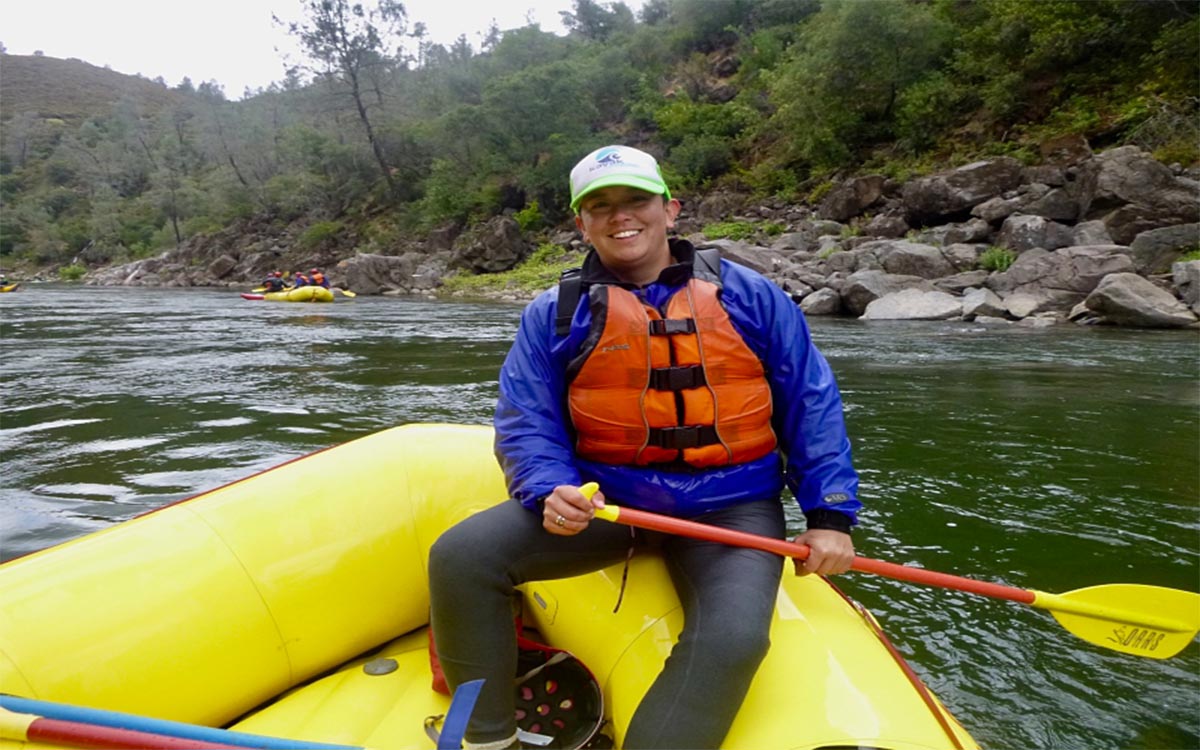
When the season drew to a close, Suzy moved to Monterey and worked as a kayak guide on the Elkhorn Slough. The calm waters of the wildlife refuge were a nice break from the adrenaline-pumping rapids she'd been rafting all summer. And kayak guiding let her continue the part she liked the most about river running: sharing the experience of the water with others.
This summer, Suzy knows that, like a migratory bird, she’ll return to whitewater. She hopes to one day guide on the Rogue, the river that first inspired her. She credits Military Outdoors for giving her the opportunity to pursue a healthier life and for the friendships she formed with other vets who share her passion for the outdoors.
“There is so much potential,” she says, “for really incredible connections, experiences, and learning; the potential for shifting perspectives and for life-changing events. I became a river guide! That’s opened doors to working in the outdoors. It’s changed the course of my life.”
 The Magazine of The Sierra Club
The Magazine of The Sierra Club

